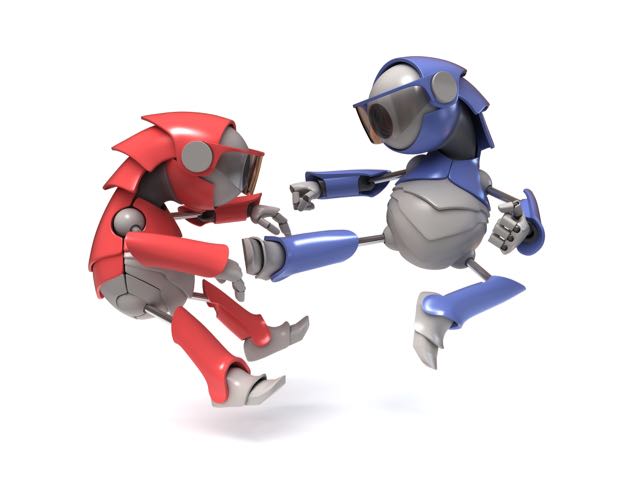A magazine where the digital world meets the real world.
On the web
- Home
- Browse by date
- Browse by topic
- Enter the maze
- Follow our blog
- Follow us on Twitter
- Resources for teachers
- Subscribe
In print
What is cs4fn?
- About us
- Contact us
- Partners
- Privacy and cookies
- Copyright and contributions
- Links to other fun sites
- Complete our questionnaire, give us feedback
Search:
Back (Page) chat
by Peter W McOwan, Queen Mary University of London

Given the importance of computing to every aspect of our daily lives, it's not surprising that lots of famous people have famously said something about computing. Expert or celebrity, we bring together a collection of the wise and weird words creatively uttered about the subject.
Isaac Asimov
Science fiction author Isaac Asimov said "I do not fear computers. I fear the lack of them." Wise words from the person who first formulated the three laws of robotics, and perhaps felt that his fictional laws would protect all of humanity from roboty type problems. Sadly no one has yet been able to implement his laws in a real robot, as they comprise rather woolly and complex statements like "a robot cannot endanger a human life", a statement that requires a tremendous level of information about the situation to be valid. Those few who have so far actually been killed by robots have in the main done so by foolishly entering the safety cage built round industrial robots, and been crushed.
Say ... BUMP
Albert Einstein
The next quote to consider is that of physicist and hater of wearing socks Albert Einstein. His famous statement that "artificial intelligence is no match for natural stupidity" is clearly shown by the robot story above. Developing AI and robotic systems that people can use usefully needs the designers to think carefully about how people will understand it and interact with it. If not that good old human stupidity will win the day.
Say ... BADLY
Pablo Picasso
Abstract painter Pablo Picasso's contribution to art is legendary. His contribution to our list of quotes about computing comes in the form of the statement "Computers are useless. They can only give you answers." It's rather an odd statement as it contains what an artist would call a dramatic tension - useless but providing answers which most of us would say is useful. Art is a growing theme in creative computing. Whether it will produce another Picasso is unknown. We await the computer's answer.
Say ... BRUSH
Emo Philips
American comedian, Emo Philips, quipped "A computer once beat me at chess, but it was no match for me at kick boxing." The world moves on, and computers can now beat humans at most games including Chess, Go and Poker. Robots able to walk on two legs and remain stable even when pushed have now been developed too: Boston Dynamics robots such as Atlas and its predecessor Peltman, for example. Whether these advanced robots will ever be used in kickboxing remains to be seen, but if they are my money would be on the robot.
Say ... BASH
Douglas Adams
Author of the Hitchhiker's Guide to the Galaxy, Douglas Adams, felt he had to have a laugh at the expense of the millennium bug with his statement "I really didn't foresee the Internet. But then, neither did the computer industry. Not that that tells us very much of course - the computer industry didn't even foresee that the century was going to end." A great deal of hard work went into correcting the potential date error in computer systems to prevent any possible calamities. When nothing much happened on New Year's Eve, 1999 there was criticism of the money spent. But of course it was by spending that money that the bug had been rendered mostly harmless.
Say ... BADMOUTH
Agatha Chrystie
Author, Agatha Chrystie, wrote in her book, Halloween party, "I know there's a proverb that says 'To err is human', but a human error is nothing to what a computer can do if it tries." Quite a prediction from the queen of mystery, and shown to be true many times over the years since, as computer systems incorrectly calculate tax and declare healthy people dead. But like any good whodunnit the twist is that the real culprit is often not the computer itself but in the way the program has been written that allows those using it to so easily make mistakes. Reducing the consequences of human error is a full time career for some, as is forensic computing. It involves looking at how computers have been used in deliberate crime. Both need a strong application of, as Poirot would put it, 'ze little grey cells.'


